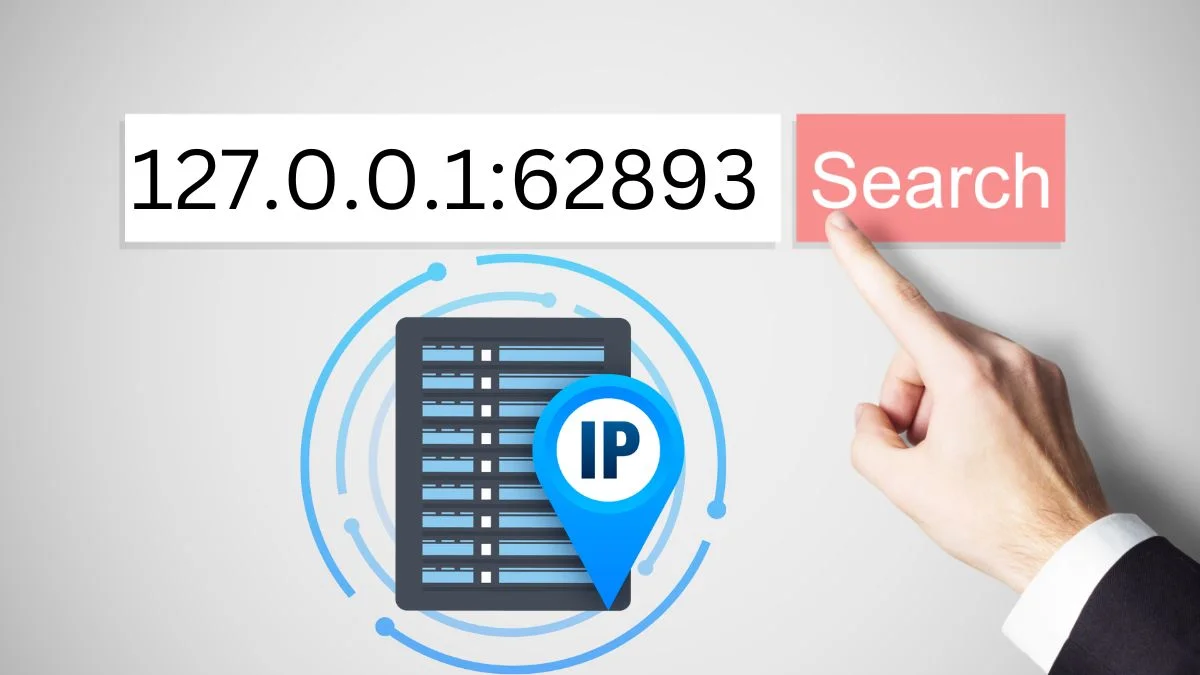127.0.0.1 is an IP address known as a loopback address which enables a 127.0.0.1:62893 computer system to exchange packets directly with itself – useful for testing local networks and troubleshooting purposes. 62893 is a dynamic port number used for temporary communication in custom applications. There is no standard service assigned to port 62893, developers use it for testing purposes.
Loopback IP addresses never leave the local system when a request is sent to them; in this article, we’ll explore its main uses.
Local network testing and troubleshooting
127.0.0.1, commonly known as the loopback address, allows a computer 127.0.0.1:62893 to refer directly to itself rather than any other devices on a network. Accessing local PC services through this means it’s possible to test software development processes or debug them more effectively without involving others in any process. It is also useful for troubleshooting problems with networking hardware since this technique allows one to pinpoint its source without incurring extra costs when troubleshooting.
Users looking to test local network connectivity should ping the loopback address in 127.0.0.1:62893 order to ensure the TCP/IP protocol stack is correctly configured, including checking if their default gateway is accessible as well as whether their network configuration contains valid subnet mask and hostname resolution settings. Pinging can also help verify whether devices have connected correctly to specific segments within their local network segment.
Network administrators can assign service loopback addresses so they operate within a controlled environment, providing greater security by only being accessible within internal networks and not external ones. Furthermore, this practice helps avoid unwanted traffic entering their system by redirecting all requests directly to local machines – providing protection from malware infections or cyber-attacks in this way.
Software development and debugging
Software development is an intricate endeavor that demands constant debugging 127.0.0.1:62893 to ensure it functions flawlessly and free from errors. Deliberate debugging helps improve system quality, user satisfaction, and development costs and ensures testing meets requirements/specifications – it may take more time but could pay dividends in the end! Debugging may seem time-consuming but can ultimately pay dividends over time.
IP Address 127 in the Class A network range is reserved exclusively for loopback use, meaning packets sent here do not reach their final destination on the network but are instead sent directly back to their source device. This loopback mechanism can help developers test software and network connections without the need for live internet connectivity.
Debugging techniques during software development can include static analysis 127.0.0.1:62893 (inspecting code without running it), print debugging (observing live or recorded print statements), and remote debugging (using a debugger on another system). Many programming languages offer tools to assist with these debugging processes; many even offer built-in debuggers. By employing debugging methods like these, developers can quickly identify any coding errors before their final product goes to market.
Accessing certain services from within a browser window
Computer users usually expect that typing “localhost” into their web 127.0.0.1:62893 browser will connect them directly with the device they’re currently using since it’s IP address refers to itself instead of another computer or network device.
Software developers can utilize this feature of the internet to test network connections and applications without generating actual network traffic. By using their localhost IP address, developers can ensure their app will run flawlessly on their system before making it public.
Unexperienced Internet users sometimes use loopback IP addresses as 127.0.0.1:62893 a way of hacking or inspecting their own systems, or conducting DOS or DDOS attacks against 127.0.0.1:62893 as an attempt at showing off to friends.
Realistically, however, this can be highly risky to your system; hackers could exploit loopback IP addresses to bypass firewalls and antivirus protections on your computer and gain access to personal data and other confidential information that they hold on you.
To protect yourself against this, it’s essential that your browser utilizes a 127.0.0.1:62893 secure connection when accessing websites and that your host file contains any website addresses that should be blocked by listing them as follows 127.*.*.*/www.[website name].com which will prevent it from connecting back through loopback IP addresses.
Security
127.0.0.1:62893 is a loopback address, enabling software on a local machine to refer back to itself. Port 62893 acts as a gateway for specific services or applications (like Memcached) within that local machine to send and receive data within its local network environment, providing developers with a way to test network apps without exposing them publicly online.
Testing and Debugging: Web and IT developers find this unique IP 127.0.0.1:62893 address invaluable as a testing and debugging tool. By running applications locally without needing internet connectivity, they are able to run applications locally to detect and rectify code errors and improve application performance while also speeding up development workflows and cutting costs.
Security: While local server addresses and ports may not be vulnerable to 127.0.0.1:62893 unauthorized attacks due to their closed nature, misconfigurations or vulnerabilities in software running on them could still be exploited by malicious actors. Encrypting data traffic sent over these ports provides another layer of protection by guaranteeing that unauthorized parties cannot intercept and 127.0.0.1:62893 read it. Regular audits are conducted on these servers and applications, and they help detect any unusual activity and potential risks.
One important step to ensure the integrity of these local servers is making sure any software interacting with them receives regular updates, as failing to apply security patches could open them up for exploitation and compromise sensitive data.
